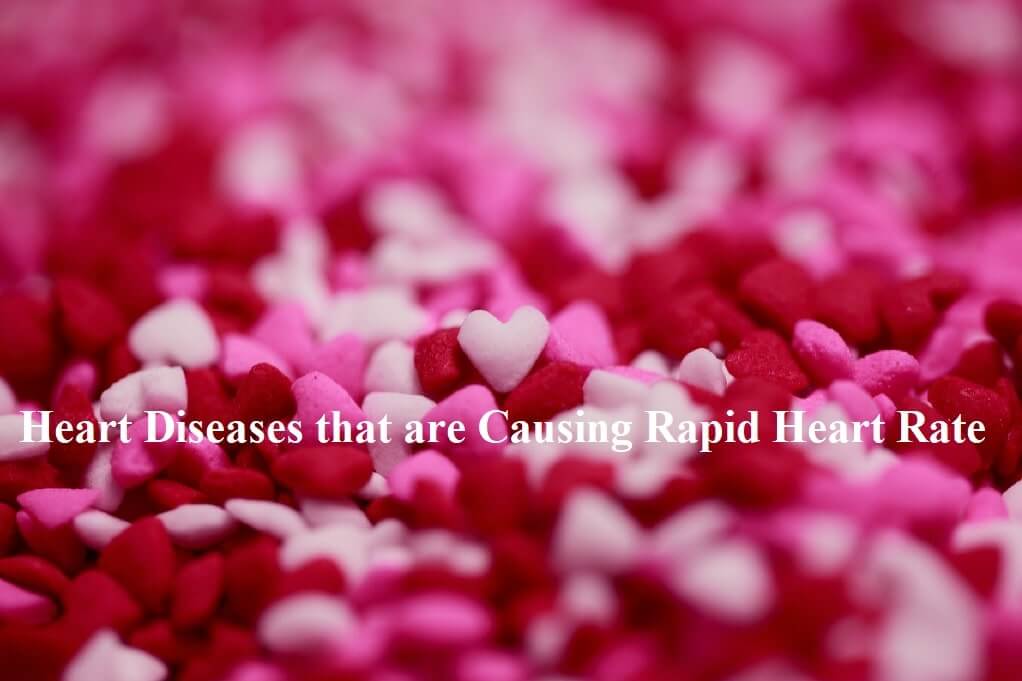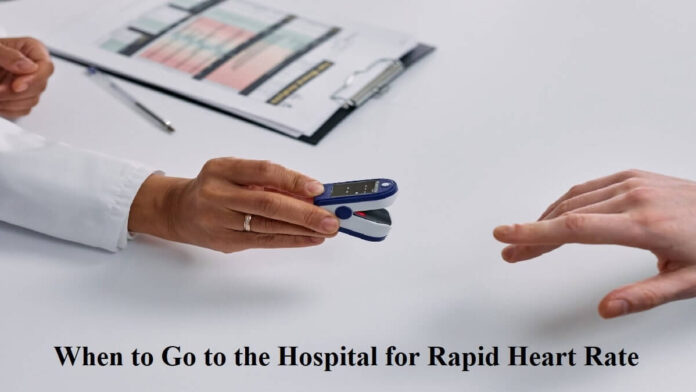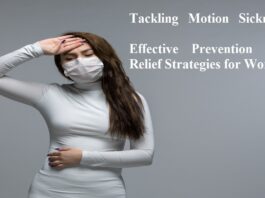The key to good heart health is a healthy diet + regular physical activity. When it comes to heart health, it becomes critically important to maintain a balance between both diet and exercise because both are key drivers.
When you experience abnormal changes to your heart functioning, it’s crucial to seek medical help at the first sign or symptom.
Rapid heart rate is also known as tachycardia. This happens when your heart beats over 100 times per minute.
Table of Contents
Types of Tachycardia
Supraventricular
This is the most common type in which your upper chambers of hearts misfires. This could cause decreased blood flow to your body because of the rapid contractions.
Sinus Tachycardia
This occurs when the pacemaker of the heart sends faster signals than normal.
Ventricular
This occurs when the lower chamber of the heart is functioning abnormally and sends signals at a very rapid speed.
Everyone is different and heart rate also varies from one person to another. As there is no fixed range that determines a dangerous situation if the heartbeat goes above that.
But it’s important to understand what should be your normal heartbeat rate? What’s considered to be dangerous and when there is a need to go to the hospital for rapid heart rate?
Read on to completely understand this topic.
Normal Heart Rate
According to the American heart association, resting heart rate beats
60-100 times/min. However, there is a large variation exist between these
numbers depending upon the person’s age, physical activity, medical conditions, certain medicines, smoking, and many others.
People with higher physical activity tend to have a lower heart beating rate and that could be as low as 40 beats/min.
Here is a table showing resting heart rate based on age.
Rapid Heart Rate
Rapid heart rate is a situation when your heart beats too fast. However, the rate varies from one person to another depending upon different factors.
Here are some important factors that need to be considered
- Fever
- Side effects of certain medications
- Strenuous exercise
- Smoking
- Alcohol intake
- Too much caffeine consumption
- Stress
- Underlying health conditions (e.g. anemia, hyperthyroidism, heart, or thyroid conditions)
Dangerous Zone
If you notice any unusual changes to your body besides increased heart rate, then immediately call your doctor or go to the hospital.
Here are some basic changes that could happen
- Irregular heartbeat or fast above 120 beats/min
- Chest pain
- Severe coughing
- Shortness of breath
- Fainting
- Nausea
- Weight gain of 2lbs/day
- Difficulty in sleeping
- Tired, restless, or confused
- Feeling dizzy
Causes of Rapid Heart Rate
There are several different things that may be causing rapid heartbeat.
That includes:
- Certain medication (i.e. beta-blockers, caffeine, amphetamines)
- Potassium deficiency or low levels of other electrolytes
- Coronary heart disease
- Changes to your heart muscles may be due to infections or heart diseases
- Thyroid problem
- Anemia
- Stress
- Previous heart surgery
- Severe bleeding
- Smoking
- Hypertension
- Diabetes
Sometimes, it may not be possible to find the exact cause.
Heart Diseases that are Causing Rapid Heart Rate

Sometimes rapid heart rate could be a sign of serious heart diseases. These conditions could be:
Coronary Artery Disease (CAD)
With CAD it’s become harder for your arteries to transport sufficient blood to your heart. Over time, this can cause fatty acids to build up in the arteries and this makes them narrow.
Therefore, the narrowing of arteries speeds up the heart beating rate and sometimes blocks the blood flow leading to a heart attack.
Arterial Fibrillation (AFib)
This is one of the most common heart-related disorders that is causing abnormal signaling to the upper heart chamber. This will cause your heartbeat to become uneven and beats rapidly.
For some people, arterial fibrillation is like come and go. In one moment it can be normal and in the next moment, it goes into an AFib state.
AFib is related to many dangerous conditions like heart failure or stroke. Therefore, it’s a wise idea to see an AFib clinician, if you don’t even have the signs or symptoms.
Arrhythmia
This is a heart disorder causing the heart to beat too fast or slow when the electric impulse that regulates the heartbeat doesn’t function properly.
When the blood flow to your body is disrupted it can damage your brain, lungs, and other organs. This could be life-threatening if it’s left untreated.
Heart Failure It is a condition when your heart isn’t able to adequately pump blood to your body. Without proper blood flow, the body’s different organs start to disrupt. It’s a long-term condition, but if left untreated it can cause life-threatening complications.
Diagnostic Tools
Depending upon the condition, your doctor will perform certain tests that will help to diagnose your condition. Here are some important tests that need to be done:
Electrocardiogram (ECG)
This is a very convenient way of diagnosing heart problems. It helps to determine:
- Heart attack
- Heart rate
- Heart rhythms
- Structural abnormalities
If ECG results show any problem, then your doctor may recommend additional tests for further confirmation and also to begin the necessary treatment.
Cardiac Imaging
To check the proper blood flow and structural abnormalities cardiac imaging tests are used to be done. These include:
- Echocardiogram
- Chest X-ray
- Computerized tomography (CT)
- Magnetic resonance imaging (MRI)
Additional Tests
To diagnose the underlying cause, your doctor may ask you for additional tests. This will help you to get better treatment.
Conclusion
There is a large variation that exists between person to person when it comes to the heartbeat. Several different factors decide what the ideal heartbeat is for the person.
If you are experiencing a heartbeat that is consistently very high along with the signs like chest pain, dizziness, fainting, or shortness of breath, then you must need to call your doctor right away.





